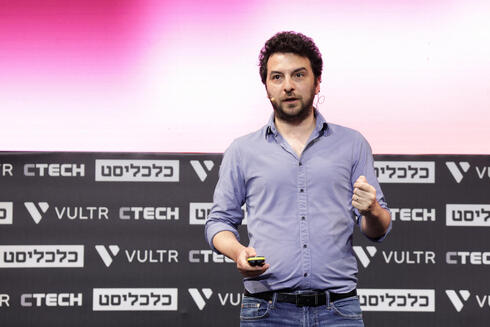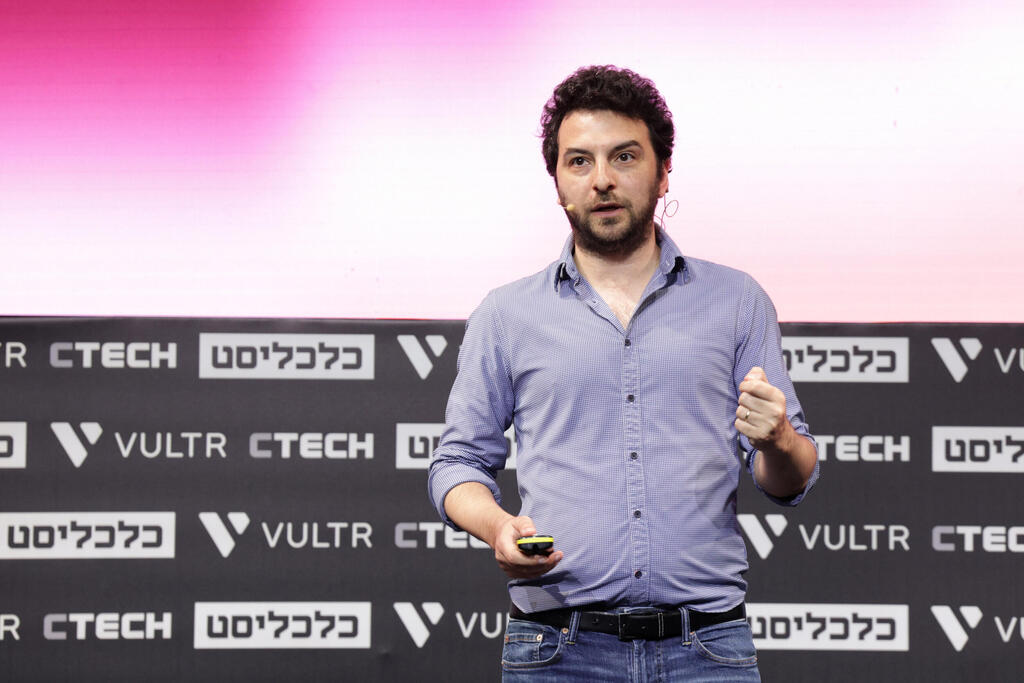
“Not just another scaled-up model”: AI21 Labs CEO on the company's new Jamba model
Ori Goshen spoke at Calcalist’s AI conference about how organizations struggle to adopt AI tools due to several factors, including the unreliability of these tools, the high cost of errors, and issues related to data security, and how AI21 Labs latest model addresses these problems.
"We are all exposed to the Generative AI revolution, whether it's ChatGPT or image generation, and there's no doubt that these tools are impressive and produce content at a very high level. But the big market and the major challenge is in the enterprise sector," said Ori Goshen, Co-founder and Co-CEO of AI21 Labs, at Calcalist’s AI conference.
Goshen spoke about the company's new model, Jamba 1.5 large, which possesses top-tier performance and efficiency, especially in its ability to handle particularly long context windows. AI21 Labs builds language models and AI systems for organizations. It has raised about $336 million and is valued at $1.4 billion.
According to Goshen, "In a report published by Amazon, only 6% of organizations have adopted Generative AI in production. The question is why? The main reason is that the technology is still not reliable enough. There is a phenomenon called ‘hallucinations,’ and there are also basic logical errors that models make. Even if you give a model basic arithmetic operations like multiplication, you'll see failures and get wrong results even though they're presented as correct.
“The second issue is transparency: in industries where the cost of an error is high, there is an expectation that systems will provide a clear explanation for their answers. The third issue is the efficiency of the technology; these language models are based on an architecture called transformers, which hasn’t changed much since it was introduced seven years ago. Beyond that, the technology is not built for data security. There’s a lot of sensitive information in organizations that they are reluctant to upload to cloud services because of trade secrets, legal contracts, and more."
In light of all these issues, organizations need to think differently, Goshen said, and highlighted two prominent trends: the first is new model architectures and the ability of models to handle very long inputs, which is crucial for models; the second trend is the transition from models to sophisticated AI systems - systems that will be able to draw reliable conclusions, handle informative questions, but also take on complex, high-level tasks such as stock market research.
Goshen showcased AI21’s architectural innovation, the JAMBA model, which was launched a few weeks ago. "It’s not just another scaled-up model - it’s a new architecture that allows for the handling of very long inputs and addresses efficiency problems. For example, it can process an entire long document or a set of documents and handle queries that compare the documents. The model generates fewer hallucinations. Jamba will be available on all leading cloud platforms. Companies with sensitive information prefer AI models within their own organization and cloud and are very cautious about using the public cloud, which is why we offer private models for organizations and their server farms."















